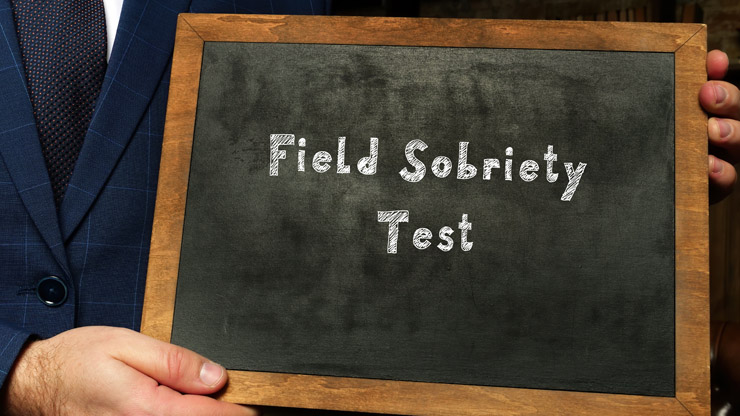
This is a tricky question and the answer has changed with recent changes in the law concerning cannabis DUI cases. Traditionally, a driver in Illinois had an absolute right under the 4th amendment to refuse all chemical testing and field sobriety testing. That is still true to some extent. However, the Illinois legislature has decided to up the penalties for persons who refuse or fail field sobriety testing as it relates to driving privileges of motorists suspected of driving under the influence of cannabis.
Illinois is considered an implied consent state, which means, if you are on the roadways within the state, you have already given consent to submit to chemical testing. If you choose not to cooperate, the secretary of state will suspend your license, regardless of whether you are eventually found not guilty of the underlying DUI charge. The implied consent statute is listed below.
625 ILCS 5/11-501.1
(a) Any person who drives or is in actual physical control of a motor vehicle upon the public highways of this State shall be deemed to have given consent … to a chemical test or tests of blood, breath, other bodily substance, or urine for the purpose of determining the content of alcohol, other drug or drugs, or intoxicating compound or compounds
While refusing chemical testing can lead to a license suspension, it has always been the right of motorists within the state to refuse field sobriety testing. Under the new law, drivers who are suspected of being under the influence of cannabis, will have their license suspended for one year (three years for repeat offenders) If they refuse field sobriety testing and six months (one year for repeat offenders) if they fail. The new law allows for a license suspension when:
The law concerning DUI cases involving alcohol is still the same and motorists may refuse field sobriety testing without consequence to their driving privileges. However, refusal of chemical testing, whether it involves a DUI based on alcohol or cannabis will still lead to a suspension in driving privileges.
Additionally, if a driver refuses chemical testing, the police officer may then seek to obtain a search warrant to allow for blood, urine, or saliva to be collected from the motorist. To do this, the officer must contact a judge, offer all the evidence that has been collected to that point, and if the judge determines that probable cause exists, then the judge will sign the warrant to allow the officer to collect the requested chemical sample. Should the motorist refuse to comply with the search warrant, they could possibly face felony obstruction charges.
In Illinois, the legalization of cannabis has brought about new challenges related to driving under the influence (DUI). For instance, with alcohol based DUIs, officers carry a portable breathalyzer that can give an assessment of a driver’s BAC while at the scene of a traffic stop prior to any arrests. While there are similar technologies under development for the detection of cannabis levels, they are not widely available to officers in the field. This means that all chemical testing to determine the THC levels is done at a hospital and usually come in the form of a blood draw, even though the law does provide for the detection of THC levels in other bodily fluids such as saliva. This is likely why the legislature has decided to suspend the driving privileges for motorists that refuse field sobriety testing when they are suspected of being under the influence of cannabis.
While the traditional field sobriety test were developed by the National Highway Traffic Safety Administration (NHTSA) to detect persons who were impaired by alcohol, the Illinois legislature has decided that these test are also sufficient for persons who are suspected of being impaired by Cannabis. In practice, this is not always accurate. During their testing NHTSA developed a battery of 3 tests that officers are trained on which include: the horizontal gaze nystagmus (HGN) test, the walk and turn test, and the one leg stand test. It should be noted that a person who is under the influence of cannabis will not exhibit any clues on the HGN test if it is conducted properly.
In addition to the standard tests, some officers have received advanced training on additional test that were designed specifically for determining if someone is under the influence of cannabis or other drugs. There are two types of training programs that officers may receive. The first is the Advanced Roadside Impaired Driving Enforcement (ARIDE) which is a 16 hour classroom course. The second is a more intensive 40 hour course for an officer to become a drug recognition evaluator (DRE) that actually teaches additional field sobriety tests exclusively for determining if a person is under the influence of drugs. These tests include the modified romberg test and the lack of convergence test.
During the modified romberg test, the driver is instructed to stand with their feet together, arms at their sides, and eyes closed. The officer then times the driver for a period of 30 seconds, during which time the driver is asked to estimate when 30 seconds have elapsed. During this time, the officer is looking for 3 different indicators: swaying, eye or body tremors, and time estimation.
The lack of convergence test is the inability of an individual to cross their eyes when focusing on a stimulus as it is moved towards the bridge of their nose. The test is conducted by moving a stimulus in a circle around the subject’s face and then slowly moves the stimulus to within 2 inches of the subject’s nose. If the subjects eyes do not cross when the stimulus is close to the bridge of the nose, then this is considered a sign of impairment.
While these tests are developed to detect drug impairment, they are extremely subjective and prone to officer error. It is often times the case that police officers will note clues of impairment that may not actually be present. In such cases, if a motorist elects to participate in these tests, they may still have their license suspended should the officer erroneously observe clues.
